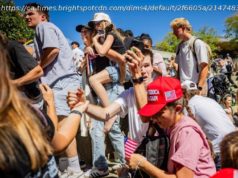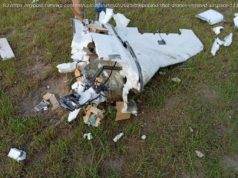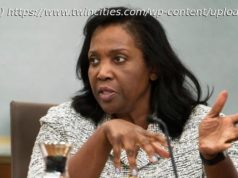The economically struggling U. S. island territory of Puerto Rico voted overwhelmingly on Sunday in favor of…
By Tracy Rucinski
SAN JUAN, June 11 (Reuters) – The economically struggling U. S. island territory of Puerto Rico voted overwhelmingly on Sunday in favor of becoming the 51st state, although turnout was low and adding another star to the U. S. flag likely faces an uphill battle in Congress.
A government website for the non-binding referendum, Puerto Rico’s fifth such plebiscite since 1967, showed 97 percent supported statehood. Only 23 percent of the 2.2 million eligible voters participated in the vote.
Puerto Rico Governor Ricardo Rossello campaigned for statehood as the best avenue to boost future growth for the island, which has $70 billion in debt, a 45 percent poverty rate, woefully underperforming schools and near-insolvent pension and health systems.
« From today going forward, the Federal government will no longer be able to ignore the voice of the majority of the American citizens in Puerto Rico, » Rossello said in a statement.
« It would be highly contradictory for Washington to demand democracy in other parts of the world, and NOT respond to the legitimate right to self-determination that was exercised today in the American territory of Puerto Rico, » he added.
Puerto Rico’s hazy political status, dating back to its 1898 acquisition by the United States from Spain, has contributed to the economic crisis that pushed it last month into the biggest municipal bankruptcy in U. S. history.
« I voted for statehood, » Armando Abreu, a 74-year-old retiree, said after voting. « Even if it’s still a long way off in the distance, it’s our only hope. »
Those in favor of statehood for the mainly Spanish-speaking Caribbean island hope the new status would put the territory on equal standing with the 50 U. S. states, giving them more access to federal funds and the right to vote for U. S. president.
Under the current system, Puerto Rico’s 3.5 million American citizens do not pay federal taxes, vote in presidential elections or receive proportionate federal funding on programs like the Medicaid health insurance system for the poor. The U. S. government oversees policy and financial areas such as infrastructure, defense and trade.
Rossello will ask Congress to respect the result, but Puerto Rico is seen as a low priority in Washington.
‘BOGUS PLEBISCITE’
The island’s two main opposition parties boycotted the vote, which gave Puerto Ricans three options: becoming a U. S. state; remaining a territory; or becoming an independent nation, with or without some continuing political association with the United States.
Puerto Rico’s former governor, Rafael Hernandez Colon, said in a statement: « A contrived plebiscite fabricated an artificial majority for statehood by disenfranchising hundreds of thousands of Commonwealth supporters. »
Rather than heading to the polls, some 500 Puerto Ricans marched on the streets of San Juan, waving Puerto Rico’s flag and burning the American flag while chanting in support of independence.
« This is a bogus plebiscite. Our future is independence. We need to be able to decide our own fate, » said Liliana Laboy, one of the organizers of the protest.
Boycotters were also angry about the costly referendum at a time when over 400 schools have closed and many Puerto Ricans are struggling to make ends meet. Schools where voting took place were in poor condition, with cracked paint and bare-bones playgrounds.
Puerto Rico spent an estimated $8 million on the campaign and election process, according to a government spokesman. (Reporting by Tracy Rucinski; Editing by Grant McCool and Peter Cooney)






